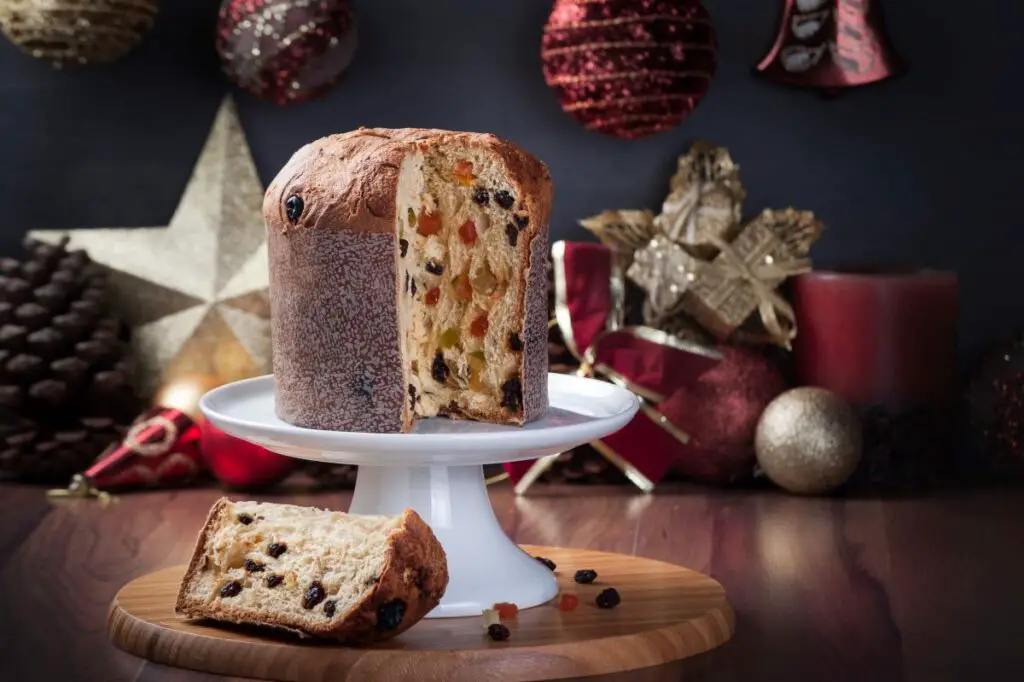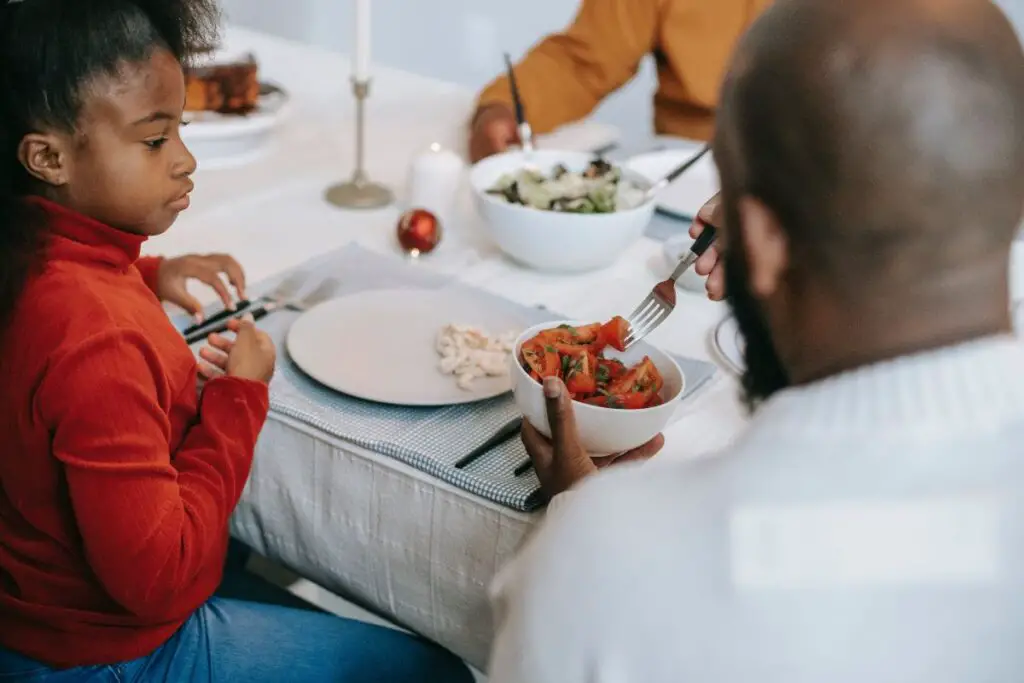Food for Picky Eaters: 17 Holiday Hacks to Know
Food plays a big part of every holiday, so if you (or your child) has autism combined with being a notoriously picky eater, there could be a few challenges. However, finding acceptable food for picky eaters is possible and most accommodations won’t take away from anyone’s enjoyment at the table.
With communications and perhaps a few tweaks to meal planning, preparing food for picky eaters can be uneventful and make holiday meal traditions enjoyable and stress-free.

I totally get that the holiday season is a time for celebrating with family and friends. But it is definitely difficult for individuals with autism (or other neurodivergents) who have certain food aversions or sensitivities.
While most holiday foods are meant to be enjoyed, there are countless traditional dishes of so-called holiday “classic” meals that some people just can’t stomach no matter how they are prepared.
Food for picky eaters often takes a form of simplicity, where ingredients are few and don’t have all the sauce and multi-ingredients that others crave. In some cases, food for picky eaters needs to be separated so it isn’t all heaped together on a same plate, which is a challenge when there are foods with gravy and other toppings that spread to other foods.
Navigating food preferences and aversions during the holidays takes patience, planning and creativity. But, it can be done, and each year I pride myself with trying more foods and avoiding attention or hurting family members’ feelings by not trying their favorite dish.
Here are some tips to get yourself or your child with autism through the next couple months when tempting food pitfalls seem to be everywhere!
Food for Picky Eaters: Be Upfront About Food Dislikes
Let your host or family members know in advance some foods you strongly dislike and absolutely cannot eat. There’s no need to go into great detail or expect them to cater the entire meal plan to you. But give them a heads up on your handful of no-go ingredients or dishes.
That doesn’t mean they shouldn’t prepare items that others love. But, by letting them know, hopefully you can avoid any food debates at the table when you forgo the item. And maybe they’ll even ask what you might prefer instead!
For example, maybe Brussel sprouts tops your list of hated veggies. Inform your aunt who is hosting Thanksgiving so she is aware. Or if eggnog is the bane of your existence, give your coworkers a polite heads up so they consider adding an alternative beverage for the office holiday party for those who don’t like eggnog.
By being upfront, you’re potentially saving the host time and money by knowing that you won’t be partaking in an item, so they can adjust the size of the portion being made. And you’re protecting your own peace of mind from feeling obligated to choke down foods that make you cringe.
Food for Picky Eaters: Offer to Bring a Dish You Like
Volunteer to contribute a side dish, appetizer, dessert or beverage that caters to your tastebuds. Bring something you’re guaranteed to enjoy amidst the other holiday foods. Recommend preparing one of your safe standbys to share at a potluck gathering.
Making and bringing your own dish gives you control over at least one part of the menu. If you’re attending a more formal meal, ask the host in advance if you can complement the menu with something specific you know you’ll eat. Most hosts will be delighted that you want to contribute something.
In addition, focus on old favorites when considering food for picky eaters.
Think back to holiday meals you’ve enjoyed in previous years, either at home or elsewhere. What were the “safe” foods that brought you comfort and joy? Ask if those recipes could be included in this year’s festivities.
Maybe mashed potatoes is your favorite holiday dish. Or sugar cookies from a cherished family recipe bring you happy memories. Finding even one or two old favorites on the table will go a long way to making the special meal enjoyable and memorable.
Food for Picky Eaters: Eat Before Attending Holiday Meals
Have a small meal or snack before you head to a big holiday gathering or dinner. Arrive satisfied so you’re less likely to be tempted to indulge in foods that trigger your sensitivities. Eat something bland like oatmeal, yogurt, toast or eggs that you enjoy to take the edge off your appetite.
If your meal time is going to be delayed, eat a little something to prevent getting overly ravenous. That way you can nibble cautiously on the safest selections when dinner is served rather than piling up your plate in a frenzied state.
You can always stash a small snack in your purse or pocket to discreetly nibble on to avoid getting a case of the “hangries.”
The key is to not make the holiday dinner about you, but to take in the experience overall and participate graciously.
Food for Picky Eaters: Politely Decline Foods You Find Unpleasant

There’s no need to announce your laundry list of food aversions to everyone. Nor do you owe them a long explanation.
Keep the focus on your own preferences and what your body needs. Say, “No pecan pie for me, but the roast chicken looks great.” Don’t criticize the dish itself, which can come across as insulting.
And don’t apologize for taking care of your needs!
The key is to practice social skills so that no one is offended or put off with declining a food item. Often, misunderstandings or bad feelings happen not because an item is declined, but how it is declined.
If you are a parent of a child who is autistic, practice positive ways of saying “no thanks.” If you are an adult with autism, remember that your food avoidances or preferences are not atypical.
After all, most everyone has food they don’t like…as well as items that they love as well!
If you are able to learn about or view the full menu being served and determine the vast majority of items will be triggers, don’t feel bad sending your regrets to decline the invitation. Especially if it’s going to be a long event centered around food and dining, declining could be the right option.
Likewise, if you’re expected to bring a problematic potluck contribution due to the theme, it’s understandable to politely opt out.
Don’t put yourself in a stressful situation that’s likely to result in an unpleasant or embarrassing experience. Let your friends or loved ones know you hope to join them for holidays in the future.
However, make declining an invitation a last resort. If you can work around it where you can enjoy the social aspects without standing out because of your food aversions, then consider that option.
During a holiday gathering, try to focus most of your mental energy on enjoying the company around you rather than worrying about disliked food.
Strike up lively conversations unrelated to the food. Engage people in games or looking at old photos. Shift attention to holiday decorations and music.
In most cases, the point of gathering for the holidays is not to critique the meal but to connect with loved ones. So prioritize interaction with people over obsessing about ingredients and textures that unsettle you.
Food for Picky Eaters: Bring ‘Safety Foods’ When Traveling
If you’re traveling or will be out and about during the holidays, pack some simple foods you know you enjoy in case you need something substantial to eat later. Granola bars, nut butter sandwiches, apple sauce pouches and crackers travel easily in a bag or purse.
Keep these non-perishable safety foods handy for periods when you’re away from home or can’t access your own safe meal options. They can tide you over if you end up someplace where the food is problematic.
Here are suggestions for making it through a holiday meal with a smile.
17 Tips Involving Holiday Food for Picky Eaters
- Politely Pass on Leftovers.
When holiday meals wrap up, you may be offered a plate of leftovers to take home. If these are foods you disliked the first time around, pass on taking them. You can simply say, “I’m full, but thanks for offering!” There’s no obligation to take home food you won’t eat. - Suggest Contributing Your Own Leftovers.
Instead of taking home unwanted leftovers, offer to divide up and share any dishes you brought that were well-received. For instance, if you baked gluten-free brownies or brought a vegan bean dip that garnered compliments, wrap up the extras to distribute. This shows your generosity without wasting food or adding to your post-holiday stress. - Request Smaller Portions.
Don’t feel compelled to take large servings of holiday foods, especially if they don’t thrill you. Ask for smaller spoonfuls of things “just to try.” Take a little cranberry sauce or stuffing to be polite. But take a lot of what makes you happy, like sliced turkey without the skin or a simple green salad. - Save Room for Dessert.
When the main course contains unfamiliar or unappetizing options, minimize portions to leave room for dessert. Fill up on dinner rolls or plain pasta if that’s the most tolerable choice for you. This leaves you excited for sweets like pumpkin pie or chocolate mousse cake that might be more satisfying. - Politely Swap Out Ingredients.
If a traditional dish has one element you strongly dislike and you are close enough to the cook to ask for a substitution, consider doing so. Request mashed potatoes made without sour cream. Ask if yams can be prepared instead of sweet potato casserole. See if the stuffing can be made without mushrooms. Small tweaks can sometimes make a dish more palatable.
- Offer to Help with Preparation.
Ask if there are any tasks you can assist with in the kitchen as holiday meals are prepared. Maybe you’d be willing to wash vegetables, set the table or stir a safer side dish. This takes your mind off worrying about what food will be served and lets you contribute to the feast. - Focus on Healthy Options.
Pile your plate high with vegetable dishes and lean protein options. For instance, load up on green bean casserole, roasted squash and turkey breast meat. Pay more attention to those foods and less towards high-fat, high-sugar items that unsettle your senses. - Seek Out Fellow Foodies.
At large gatherings, try to find others who share your food preferences or who are open to avoiding certain ingredients. Connect with relatives who also steer clear of dairy or commiserate with your cousin who hates olives too. Bond over your mutual food quirks so you don’t feel alone. - Bring Your Own Condiments.
Pack small bottles of your preferred sauces and seasonings to enhance the flavor of holiday foods. Having your own supply of ketchup, ranch dressing, or salt and pepper allows you to adjust bland dishes to your tastebuds. Just be sure your additions won’t overly alter the food another cook prepared. And, don’t make a spectacle by declaring that your condiments are “better.” - Politely Avoid “Forced” Tasting.
Well-meaning family members may try to nudge you to indulge in foods you avoid. Kindly let them know you don’t wish to be pressured to eat anything that makes you uncomfortable. Assure them you have plenty of other tasty options on your plate already. - Plan a Dish to Contribute Next Year.
Think ahead about a new recipe you’d be excited to make and share next holiday season. Find an appetizer, side, or dessert that fits your dietary needs so you can propose making and bringing it to gatherings next year. Give yourself something to look forward to trying instead of focusing on food for picky eaters. - Suggest Alternate Activities.
If a holiday event revolves solely around problematic food, suggest adding in non-food activities too. Propose watching a seasonal movie together, playing board games, or going for a walk to help break up an endless mealtime. - Recommend Menu Substitutions.
Politely ask if certain traditional dishes can be swapped for others you find more palatable. Request swapping succotash for simple glazed carrots or fruit salad instead of ambrosia. Most hosts will try to accommodate simple substitution requests. - Compare Portion Sizes.
Use your hands or utensils to visually compare portions of different dishes side-by-side. Remind yourself how small an uncomfortable serving size truly is next to your portions of enjoyable foods. Keep quantities in perspective. - Send a Recipe.
Offer to share the recipe for a dish you especially like with the host ahead of time. This increases the likelihood they’ll add it to their holiday menu. Providing the ingredients and preparation instructions makes it easy for them to include. - Focus on Beverages.
Sip on festive beverages you enjoy like sparkling apple cider, hot chocolate, fruit smoothies or flavored tea. Having beverages to tastefully tide you over can prevent snacking mindlessly on less preferred foods. - Savor Special Treats.
Allow yourself small servings of holiday delicacies you rarely indulge in any other time of the year. Though they may not be everyday foods, give yourself permission to enjoy a few bites of Aunt Edna’s peppermint fudge or a maple syrup-drizzled snowball. Savor the flavors, textures and memories these traditional treats evoke.
The holidays can still be joyful even if the food is not your favorite part. Younger children with autism may need some additional support and assistance, but keep in mind the ultimate goal is being with loved ones. There are ways to adapt and overcome serving food for picky eaters while making the holiday meal a true success.
With some planning, flexibility and creativity, you can navigate this time of year successfully. Let your loved ones know specifically how they can support you through upcoming meals and parties so you can focus on the festive spirit.
Related holiday articles by My Autism Mind
- Holiday Survival Guide to Mingling with Family Extended Members
- Crowds Phobia and Autism: How to Tame Anxiety Overload
- Autism and Holidays: Why Special Occasions Can Be Challenging
- Heartwarming Ways of Respecting Others’ Religious Holidays and Traditions
- Forced Family Traditions Can Steal Holiday Spirit from Autistics
- Autism Family Support: 5 Ways For A Happy Household
- Autism Volunteer Opportunities: 5 Ways Helping Others Fosters Acceptance
 If a traditional dish has one element you strongly dislike and you are close enough to the cook to ask for a substitution, consider doing so. Request mashed potatoes made without sour cream. Ask if yams can be prepared instead of sweet potato casserole. See if the stuffing can be made without mushrooms. Small tweaks can sometimes make a dish more palatable.
If a traditional dish has one element you strongly dislike and you are close enough to the cook to ask for a substitution, consider doing so. Request mashed potatoes made without sour cream. Ask if yams can be prepared instead of sweet potato casserole. See if the stuffing can be made without mushrooms. Small tweaks can sometimes make a dish more palatable.